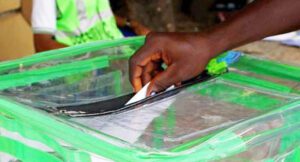N40bn earned allowance tussle: Time for FG to remodel working system of public universities
The suspension of the nine months old Academic Staff Union of Universities (ASUU) strike on December 24, 2020, had since open fresh wounds within the University system in Nigeria. While some ray of hope was splashed with the announcement of a suspension of the strike which started on March 23, 2020, the rising of counteractions from other stakeholders in the public University system who felt aggrieved by the grounds which led to ASUU’s suspension of the strike, have raised new resistance which have the potency to disrupt the University system should the resumption date of 18th of January, 2021 still hold as announced by the Government.
It would be recalled that the Federal Government had on December 22, 2020, as part of agreements reached with ASUU, promised to release N40bn earned allowance to Universities. A development that sparked new reactions and resistance against the move came from the non-academic staff cadre of the University system, upon the disclosure that 75 per cent (N30 billion) of the total amount (N40 billion) will be going to ASUU alone, leaving the rest of the non-academic staff Unions, comprising the Senior Staff Association of Nigeria Universities (SSANU); Non-Academic Staff Union of Educational and Associated Institutions (NASU) and the National Association of Academic Technologists (NAAT), with 25 per cent. The resistance to the decision by these Unions has culminated into a protest which was experienced across the Country since Tuesday. Grievances have been lodged with threats of shutting down public Universities across the Country. Some of the grounds of the protest by the Unions revolve around irregularities in the Integrated Personnel and Payroll Information System (IPPIS); demands for the renegotiation of the overdue 2009 agreement; non-payment of their earned allowances; and the perceived injustice by the Federal Government in the distribution of the earned allowance with an allocation of 75 per cent to ASUU.
The President of the Senior Staff Association of Nigerian Universities, Mohammed Ibrahim, who was quoted during the Union’s protest at the University of Abuja on Tuesday, had said: “If the government remains adamant and the issues are not addressed, JAC (the Joint Action Committee) will take an action on Thursday. We also have our children in the Universities. We hope that government will do the needful before the end of the three-day protest, but if that is not done, which we are not praying for, by Thursday we will be able to tell the whole world our next line of action.”
Arguments which have been brandished against the Federal government’s decision include the position that the alloting of 75 per cent of the fund to ASUU was not based on any logic, and therefore a ground for disorder that would breed corruption. The Unions perceive the approach of the Government as biased in the sharing formula, arguing that it will not guarantee industrial peace. The aggrieved Unions have raised concerns that the audit report of consultants engaged by the Office of the Accountant-General of the Federation recommended the amount each University would earn as well as the total amount that should be paid to the Unions, but was ignored by the Government in arriving at its sharing formula. To the Unions, the undisclosed yardstick of the Federal Government to arriving at the sharing formula of alloting N30 billion to ASUU is unfair and unacceptable.
Claims have also been made by the Unions that they have suffered more plight in the hands of the government than ASUU. They have raised objections on the ground that their earned allowance has been paid only up to 2011, while ASUU has been paid up to 2015 and therefore the N30 billion share, may cover the deficit up to 2020.
The argument is that with the alleged formula, each of the three unions would be allotted less than nine percent, while ASUU goes with a lion share of 75 percent of the money. The contention by the aggrieved parties is that it is a plot by the Government to use “divide-and-rule” strategies against the University system. It has therefore been threatened that since no one union has the monopoly of opening or closing of schools through strike, other Unions who constitute part of the University system also have the capacity to ensure that the system does not work. The aggrieved Unions are therefore calling for a well defined formula specifying their share according to the agreement reached, putting in view the 2009 Agreement. It has also been argued that since ASUU is not larger in membership size than the others, a 50-50 share or a close resemblance should be the guiding principles of the formula.
As threats of shutting down the University system by the aggrieved Unions begin to raise heads of possibilities, with ultimatum given to the government, it is paramount for the Federal Government to rise to the table of reasoning to pragmatically strike agreement with the arm of the non-academic staff unions of the University system. The necessity to arrive at a workable resolution to balance up the gaps brewing resistance and acrimonies, is paramount to address threats of grievances capable of infusing further distractions into the University system. The disruption of academic calendars by the nine month strike was an unhealthy development in the running of University system. The Government should approach the concerns with enlightened modalities to avoid a state of impasse capable of crippling academic activities across public Universities upon resumption. It would also be recalled that the suspension of the industrial action by ASUU in December never came without a warning clause that the Union would return to strike without notice, if the Government breaches agreement by failing to fulfill its part of the resolution reached.
Very significant is the necessity of the Government to honour its agreement with the University Stakeholders. The over nine months slug between the Federal Government and ASUU among other stakeholders is lamentable. The sporadic strike by ASUU and other stakeholders finds its root in the years of breach of agreements by the Government. The breach by the Government on its promises has led to the posture of loss of integrity on its part (the Government); an eye sore which has left the stakeholders with loss of confidence in the Government. It is therefore essential that the Federal Government honour the terms of agreement struck with ASUU at this time, while matters bordering on other aggrieved parties are addressed with the most outstanding feasible resolve to address any acrimony with the potency to sustain the disruption of academic activities in these institutions of learning. Over nine months of strike with the attendant disruption of academic activities is undesirable; it is therefore paramount for the Federal Government to do all it takes to ensure activities are restored to the fullest.
It is more important for the Government to redefine the working patterns of the academic system in Nigeria with emphasis on public higher institutions. The incessant experience of strikes which continue to disrupt the academic calendar is an unhealthy character with disgusting effects on running of academic programmes. The featural deficiencies are dysfunctional characters that the Government should address with utmost alacrity and pragmatic moves to change the unsavoury narratives. The uncertainties that cloud the running of academic programmes in public academic institutions is lamentable when comparison is made with what obtains in other public institutions of the advanced world where the consistency and predictability of academic calendar is a source of assurance of the time limit to attain any specified academic programme. This feature allows for proper planning which is evidently good for vitalised human capital development and resourcefulness. It is therefore sacrosanct for the Nigerian Government to work sensitively to redirect the working patterns of public higher institutions in the Country, reforming the grand architecture in order to conform with the standards of proactive orientation of the 21st Century’s advanced academic systems.




